When school closes down for the summer, it is a great time to rest and reflect. Just as school was wrapping up, I asked a few teachers, parents, and students to share their impression of Mali Rising’s Girls’ Project during the 23/24 school here. Here’s a sampling of their thoughts...
Making Sure Girls Have Options
Young people in Mali face many challenges, particularly if they are female. Education helps girls (and boys!) by providing them options for their future, but sometimes the traditional route to unemployment is barred. That’s why the Girls’ Project encourages young women to think creatively about their career options.
A Mother-Daughter Debate
Educating a child involves more than the dedication of that child – it takes everyone’s help. This is way the Girls’ Project works hard to engage the parents – and especially the mothers of our girls – in the drive to educate girls. This year, I’ve had several meetings with female leaders in our partner villages to solicit their help in organizing mothers’ support for girls’ education in the villages. This month, we brought the mothers and their daughters together to discuss girls’ education.
Reading Opens Doors for Girls
Mali Rising’s Girls’ Project is focused on helping girls get into school and succeed there. One key to success in school? Reading abilities! That’s where our Great Girls Read sessions come into play. Great Girls Read reading sessions are designed to help the girls improve their reading skills and find real pleasure in reading.
Celebrating Girls' Education in the Villages
It’s a hard slog for a girl in Mali to get through the school year. That’s why at the end of each year the Girls’ Project celebrates girls’ achievements with our girls and their entire villages! These Feasts (as we call them) are fun, but also are a great way to engage parents and the whole community in a discussion about the importance of girls’ education. Read on…
Fanta the Future Firefighter
As the school year comes to an end in Mali, I’ve been talking with a lot of the girls who are part of the Girls’ Project. Their stories are so compelling that I want to share some of them with Mali Rising’s supporters. Today, I wanted to share the words of Fanta, a student at Judge Memorial Middle School in the little village of Sankama.
A Hero Who Keeps Going: Korotoumou
In the rural villages of Mali, girls face many difficulties in order to be able to study. Some live very far away from school, and others face family problems. Through my interviews this month I have met girls who each have a unique story, but each was able to overcome these difficulties despite their young age. Because of their determination, they were able to continue to go to school and build a better life for themselves, and for their families. I wanted to share just a few of the stories that most moved me with you all. I’ll start with the story of Korotoumou, told in her own words.
Discussing Gender Violence: Boys & Girls
As we work to help girls succeed in school, we know a good relationship between girls and boys is very important for the success of girls. In Mali, school-based violence is a large-scale problem with harmful consequences for girls, but also for society as a whole. The violence suffered by girls affects their learning, their physical and mental health, their personality and their future. That’s why February’s theme for the Girls’ Project meetings was Stopping School-based Violence.
Mothers Standing Up for Girls
By Hindaty Traore, Girls’ Project Manager
It's a Friday morning under a blazing sun in the village of Sankama – home to Judge Memorial Middle School. A group of more than forty people sitting in the school’s Grade 8 classroom with me sat right in front. In front of the crowd, I lead a meeting with the mothers of students in Sankama, a member of the school management committee, and the school principal.
All families are committed to the academic success of their children. However, this success depends on the dialogue between school staff and parents as well as their involvement in supporting their children's education.
To be able to monitor their children's schooling, parents must be well informed of the results, but also of their child's academic behavior. All of these rights were reminded to the mothers during the meeting.
The involvement of parents is very important in the education of girls, especially that of mothers. In Mali Rising Foundation partner villages, we have noticed that parents are less interested in monitoring their children. Everyone sends their child to school but do not know that they have a role to play for the success of their child.
To help change this dynamic, we decided to organize meetings with the women each village to discuss the importance of their involvement in the education of their daughters and how they can do it. We also explained the importance of girls' success for families and the country as a whole. Through the various interventions, we found that mothers do not go to school to know the progress of their daughters, do not follow them at home, and give the girls a lot of domestic work which limits their ability to study.
In our partner villages, women's modest incomes do not allow them to hire someone to help them with housework, so girls help their mothers every day. This means that girls devote less time to schoolwork than school. They have less time to learn and do their homework and this negatively affects their school performance, sometimes causing dismissal or dropping out.
Through our various discussions, the women learned how to help her daughters at home after school, how to go to school each month to check on her child's progress, how to lighten the housework to give time to study and learn.
For the best functioning of the involvement of the mothers of students, we have agreed to hold two meetings a year for the women to discuss their issues and problems. In between these meetings, the women leaders in each village will also remind the mothers of students to follow and give time to their daughters at home, to check in with the school on their daughters’ progress, and other basic strategies.
Sali Diawara's two daughters study at Judge Memorial Middle School in Sankama. Sali says she is involved in the education of her daughters. She explains: “I don’t give my daughters chores when they have to go to school. They only help me on weekends. I would also like them to take private lessons but unfortunately I don’t have enough means.”
Sali herself had the chance to go to school. But she could not continue her schooling because of an early marriage, and she wants her daughters to have a different fate from hers. Thanks to her commitment, her daughters obtain good results -- they are always among the best in their classes. This story encouraged other women at the meeting to do like Sali so that their daughters could succeed too.
The teaching staff of the school also want to help reduce the household responsibilities of girls. Ibrahim Diarra is the principal of Judge Memorial Middle School in Samkama. With his colleagues, they want to organize at least one meeting with parents and traditional and religious leaders to encourage them to support girls' education.
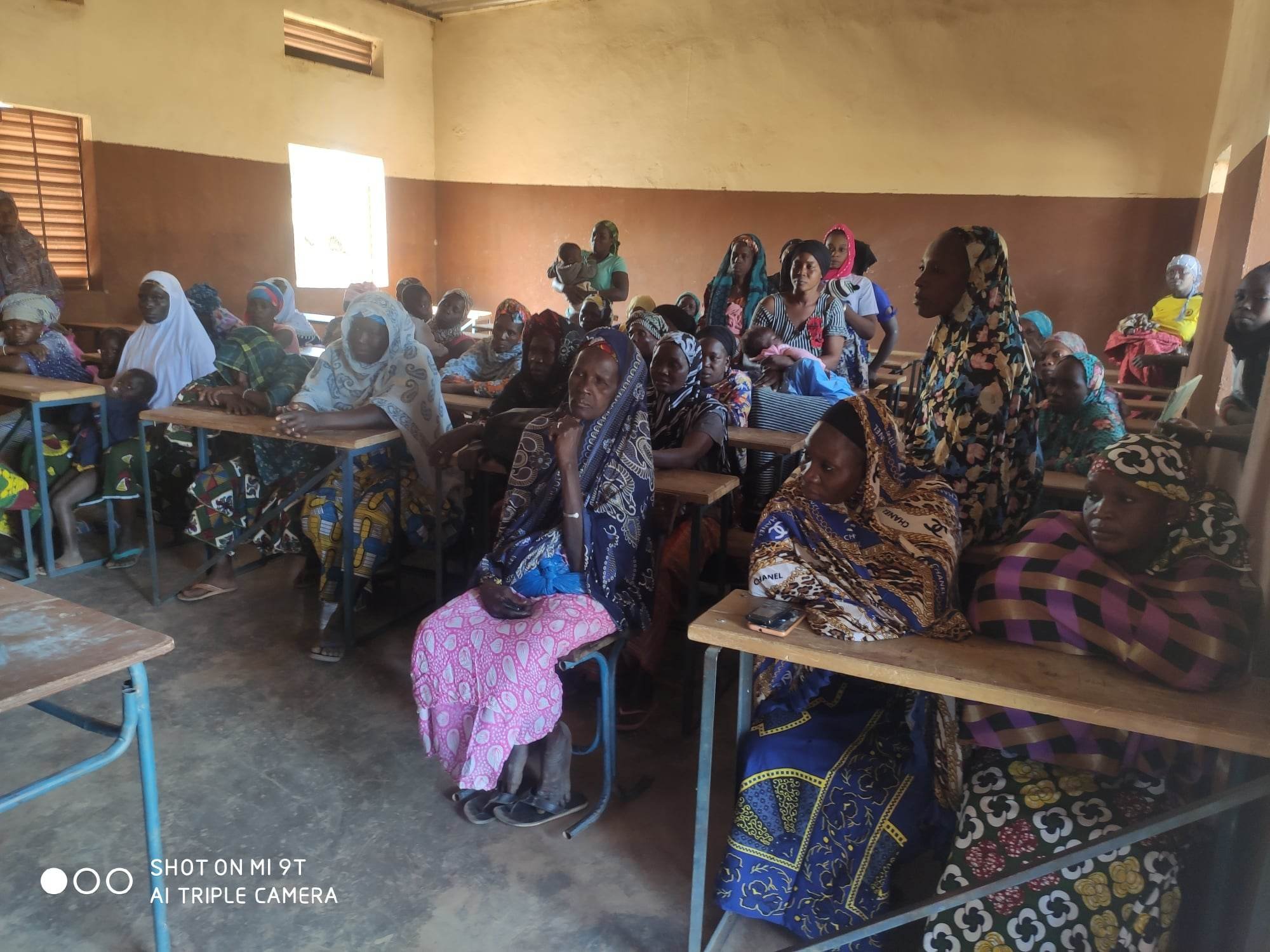
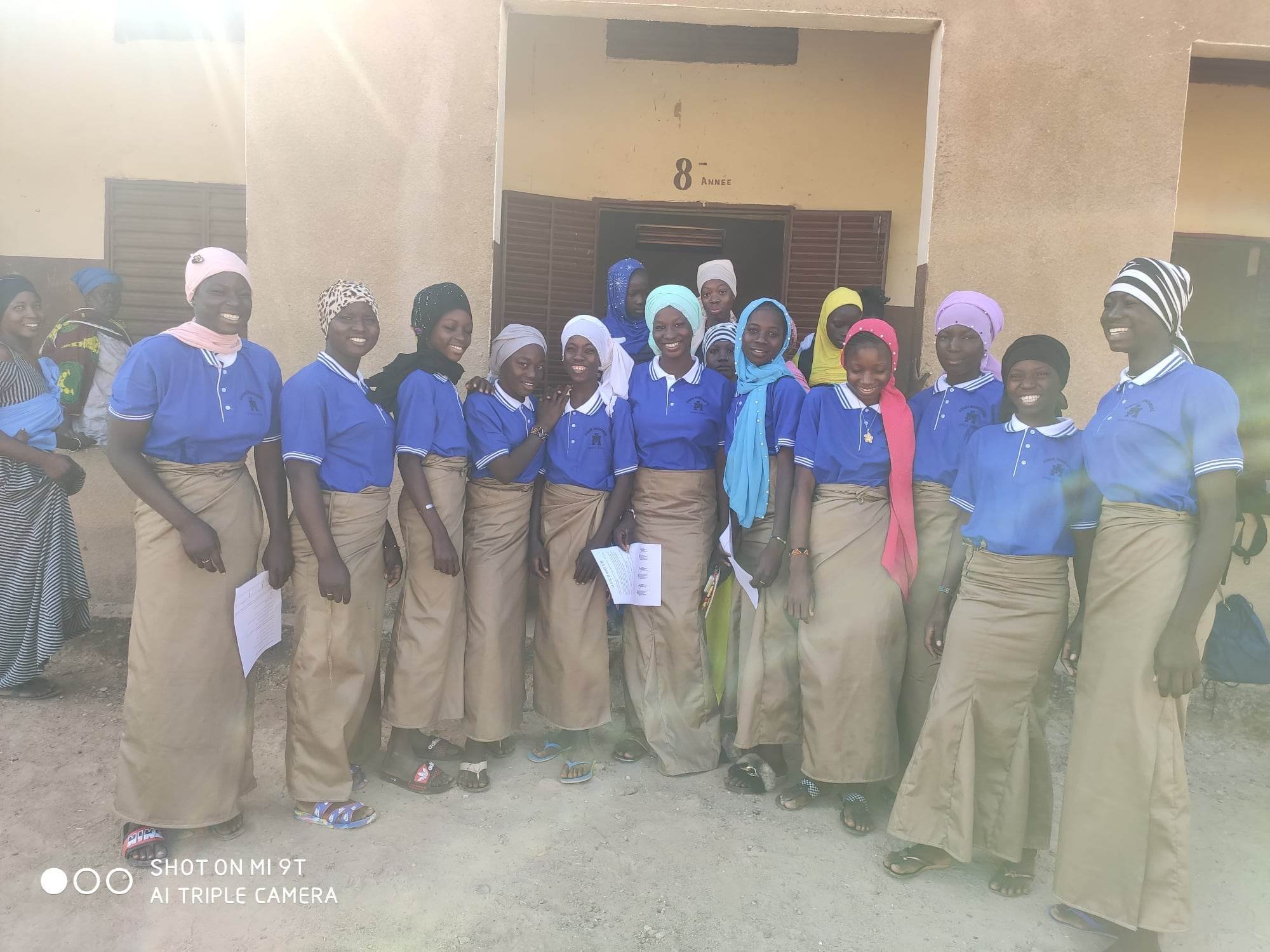
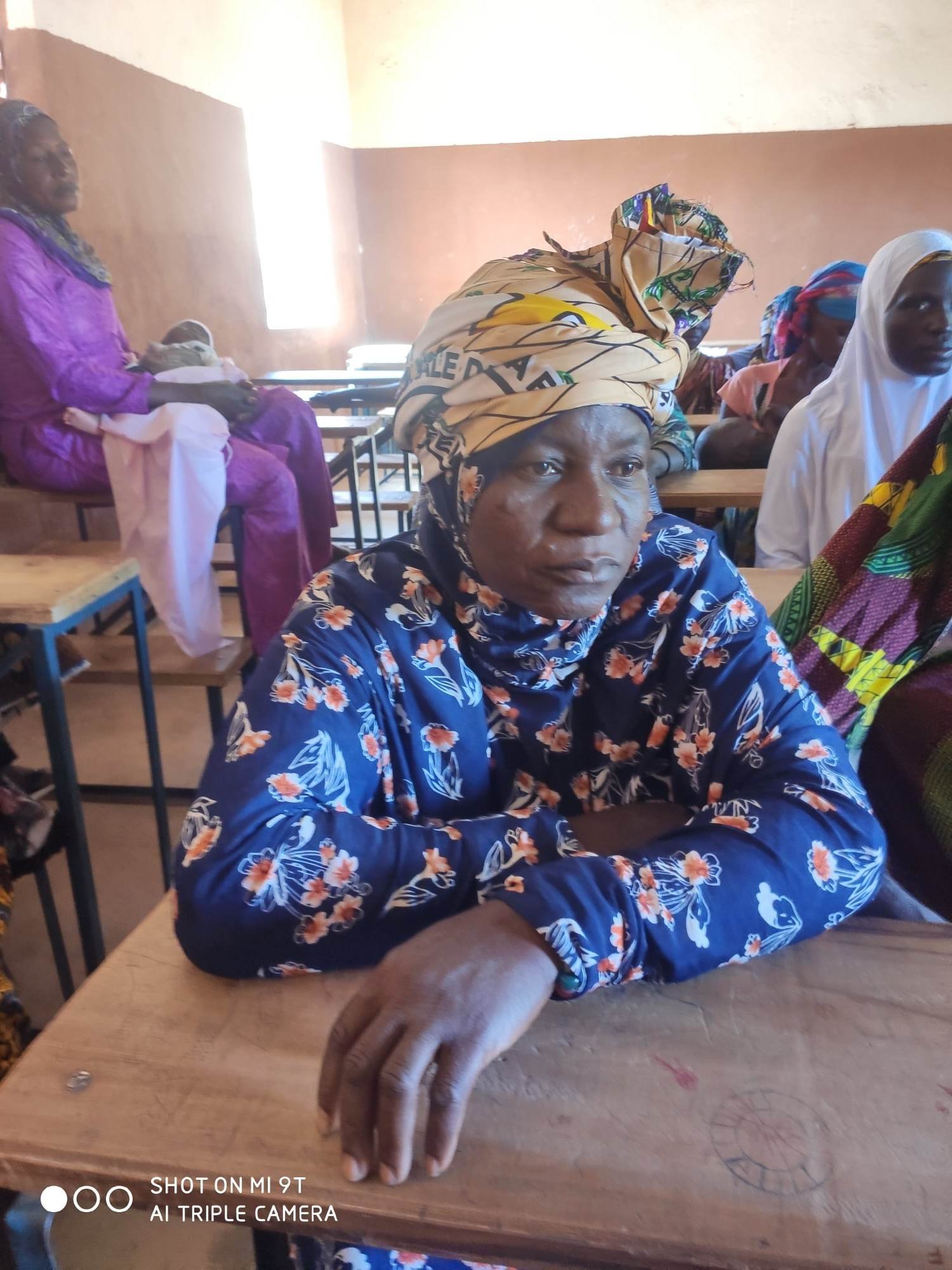
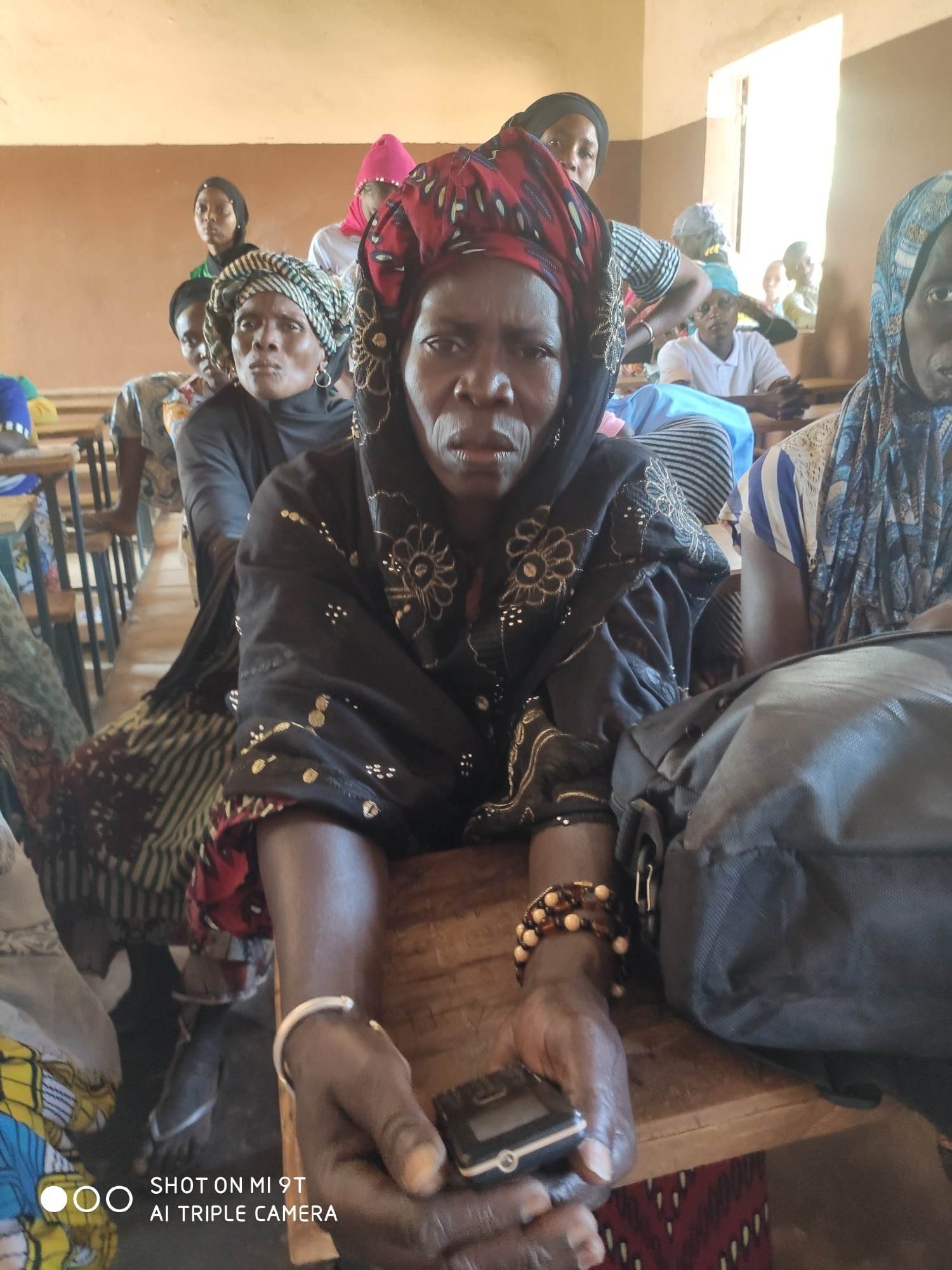
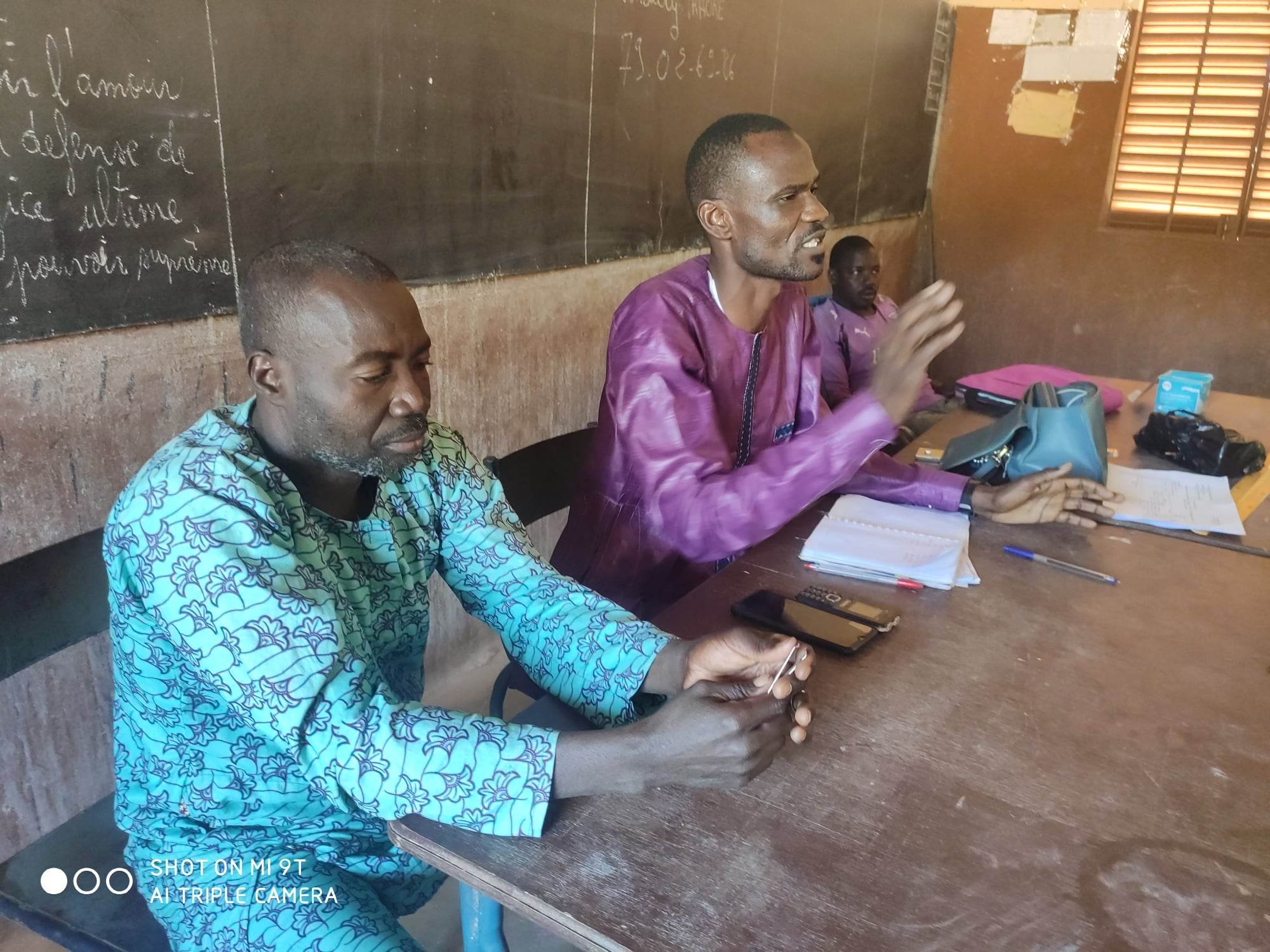
Mr. Diarra explains: “We will raise parents’ awareness of the need to reduce girls’ workload so that they have time to devote themselves to their studies. This is important for their academic success.”
Mah Coulibaly is a housewife in Sankama. She lives with her husband and children. They have two daughters at school. She says: “We don’t have enough resources. My daughters sell my wares. They also help me with other activities. I am aware that this affects their studies. But, I have no one else to help me. I would try to do everything possible to give them time to learn the lessons.”
I drew inspiration from my own story to raise awareness of how girls have more time for their studies when they don't need to spend too much time on household chores. I explained that I help the girls today because I was able to focus on my studies. We concluded our meeting with a short quote “When girls fail, the whole your community has failed, because it is your duty to ensure a better future for them.”
Helping Students Who Struggle with French
We are in the second year of trying out a new tactic to help our students – assessing their French language skills so their teachers can better help them learn. The assessments are critical because poor French skills make it nearly impossible for students to learn their other subjects and they get discouraged and drop out. This year, we are doing the assessments in four partner villages, and we spoke with one participating student -- Awa Doumbia, a 7th grade student at Judge Memorial Middle School after her assessment.


